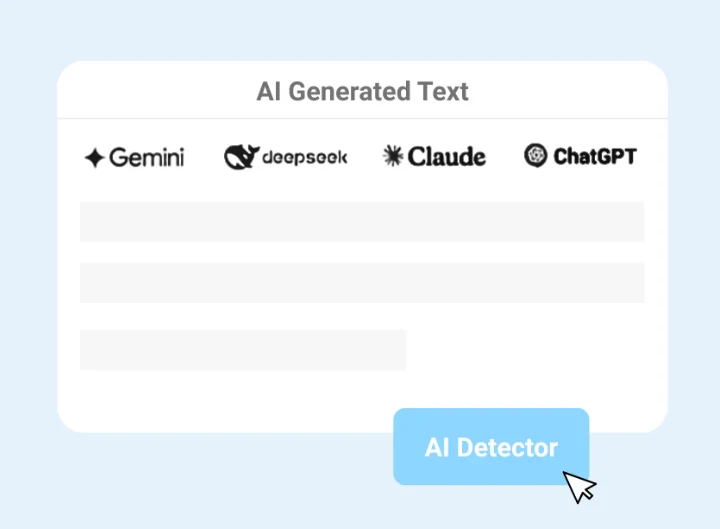Why Does AI Content Sound Fake — and How Can You Fix It?

Artificial intelligence has changed how we create content, and AI tools are now capable of writing entire articles. Have you ever read a piece, which, well written at first, somehow just sounds off the more you read it?
As humans, we know instinctively when something doesn’t sound right, even if we can’t always precisely explain why.
If, on the other hand, you’re someone using AI to write, you’ve likely wondered what’s causing this artificial feeling and how to fix it? Let’s unpack it, from syntax to word choice (by the way if you start feeling a bit fuzzy about any of the concepts we’re going to cover, you can ask AI for a free to generate a more detailed answer).
Why AI-generated Content Sounds Wrong
You’ll often read that AI writes formally and picks the wrong words, but what does that mean, exactly, and why are they wrong?
1. Flowery Language
AI tends to abuse flowery, overly embellished words and sentence structures. Like this:
- AI: “These subtle cues are what naturally guide readers through a narrative or argument.”
- Human: “The way we speak and emote helps us tell a story.”
How to fix: replace long and formal words with short informal ones. Narrative → Story.
2. Repetitive Structures
AI algorithms tend to write sentences of the same length. For example:
“AI algorithms, reliant on statistical models, often repeat patterns. This can result in monotonous sentences that lack variation.”
Notice that the paragraph has two sentences, and each is about 50% of the entire paragraph — they’re equal in length. That’s bad rhythm. Humans tend to mix short and long paragraphs. Short paragraphs provide relief and punch, while long paragraphs build suspense.
Hot to fix it: break up your long sentences with short ones.
3. Missing Context
Modern AI tools have safety guardrails, which filter everything an AI says and remove things that are potentially offensive. Unfortunately, cultural references, idioms, and stereotypes get mercilessly cut out. This leads to emotionally flat and unrelatable writing. There’s no other way to fix this, other than manually “season” the writing.
4. Unimpactful Language
Here’s another problem with the same origin — AI-generated content often feels bland and washed out. It overuses cliches and states things explicitly, that would work better if left up to to reader to guess:
- AI: “She lost her beloved dog yesterday, leaving her devastated.”
- Human: “She bawled her eyes out when she found out about Dash”
Common AI-generated Phrase Examples
Under the hood, AI tools use statistical models to pick the most likely word to follow the preceding one. Some words are more common than others, which creates unique AI cliches. If you spot them, rewrite or cut this fluff:
- “In today’s fast-paced world…” — fluff, cut it out.
- “It is important to note…” — fluff, cut it out.
- “Studies have shown that…” — which studies?
- “It is a known fact that…” — fluff, cut it out.
- “Many people believe that…” — fluff, cut it out.
A Few More Tips
Mix simple, compound, and complex sentences. A simple sentence consists of just one clause. A complex sentence consists of one independent clause and one or more dependent (subordinate) clauses. A compound sentence consists of two or more coordinate (independent) clauses.
Add a unique perspective. AI tends to write everything in the third person unless you specifically ask it not to. If possible, write about your personal experiences — your writing will instantly sound more genuine.
Lastly, add missing details, which AI-generated content usually lacks. Instead, it relies on bombastic descriptions and amplifier words to make an impact:
AI: “Designed specifically for graphic designers, this software boosts rendering performance significantly.”
Human: “Figma’s dev mode saves developers 30 hours per week, our survey found”
5. Be Selective with AI-generated Content
Rather than asking AI to draft entire articles, use the output selectively for outlining, summarizing research, or generating specific ideas, then flesh it out yourself. For example, you can copy-paste three articles into an AI chatbot, like Overchat, and ask it to generate a summary of key topics.
Lets Not Write Like Robots
AI can be a powerful writing aid if used properly at least — not to replace a human writer, but to support them. A language model is a garbage dump of information, both useful and useless, and when you ask it to write something it tries to pick the most relevant things it knows the best it can. Often, that’s not good enough. Even the most advanced AI models like GPT 4.5 need a human editor to add perspective and humanize the tone.
You can use AI to generate content, as long as you’re not copy-pasting it directly. AI is great at outlining, brainstorming, and providing inspiration. It’s also getting better and better at satire — use it responsibly, and your writing will always sound like you, and not a robot, wrote it.

Why Retail Software Testing is Critical for Effective E-commerce Development?

How Sales Teams Increased Productivity with Parallel Dialers

Curtain Dry Cleaning and Leather Sofa Cleaning – Reliable Care by Duo Nini

LLM-Native Software Architecture: Designing Products for Agents, Not Just Humans

Bespoke in the South: How Charlotte’s Elite Are Personalizing Their Rolls-Royce

Unlocking Innovation: How an AI Software Development Service Can Transform Your Business

Artificial Intelligence: Transforming the Future of Business and Everyday Life

AI-Driven Image Restoration & Reuse: VisualGPT AI Image Sharpener








